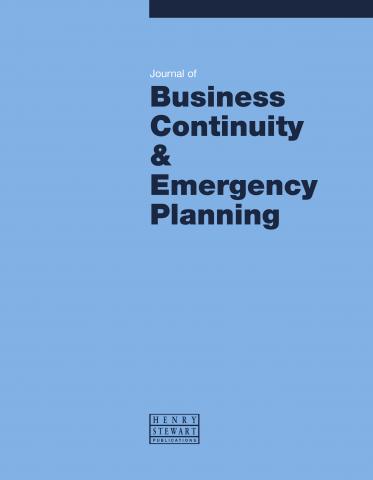"Congrats on Journal of Brand Strategy. From the outset I liked the focus on real problems and real solutions. I especially like the case study section, there are so few outlets for this article type and it can be so useful."
Why and how to employ the SIPOC model
Click the button below to download the full text of the article.
Abstract: Within the business continuity industry, the debate regarding the business impact analysis (BIA) shows no sign of being resolved. Fervent discussions online, at conferences and in businesses around the world continue to promote or dispute its value. This paper does not pretend to resolve that debate but offers a compelling alternative to achieve the outcomes entrusted to the BIA and overcome the challenges in obtaining them. Business disruptions, both from natural occurrences and manmade, are occurring more frequently at the same time as business continues to get more complex. To exacerbate the issue, business continuity practitioners are increasingly expected to do more, and often with fewer resources and in condensed timeframes. The SIPOC tool from Lean and Six Sigma, which considers suppliers, inputs, process, outputs and customers, gives business continuity practitioners a practical alternative. By using the experiences, expertise and tools of other professions in a transdisciplinary approach, it is possible to accomplish the continuity imperatives of the business while adding value to the organisation when resources available to the practitioner are constantly being compressed.
Keywords: SIPOC; BIA; business continuity; business disruptions; Lean; Six Sigma; continuity imperatives
Charlie Brown is Director of Enterprise Risk Management for Primary Residential Mortgage, Inc., where he is responsible for life safety, emergency response and business continuity. He also chairs the company’s Risk Oversight Committee and co-chairs the Information Security Committee. He has Associate Risk Management Professional certification from the Disaster Recovery Institute International and instructor certifications from the American Red Cross and Federal Emergency Management Agency. He sits on the advisory board of Utah’s Be Ready Business Private Sector Preparedness Council and is a director of sponsorships for the Northern Utah Chapter of the Project Management Institute. He is also a member of the Utah Emergency Managers Association and received the Private Sector Volunteer Award for 2017.



